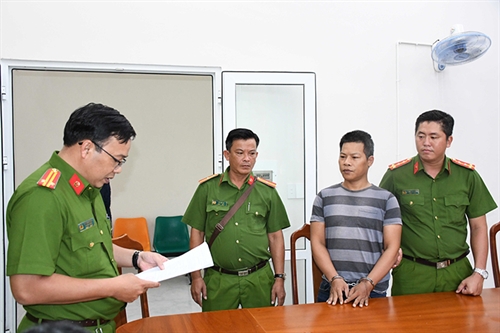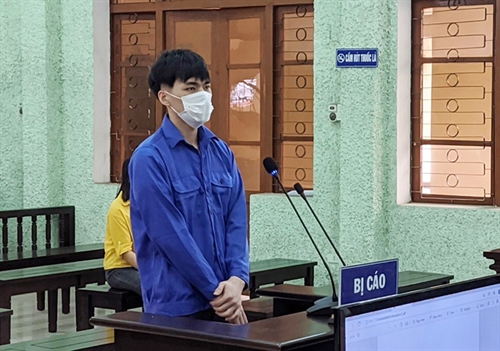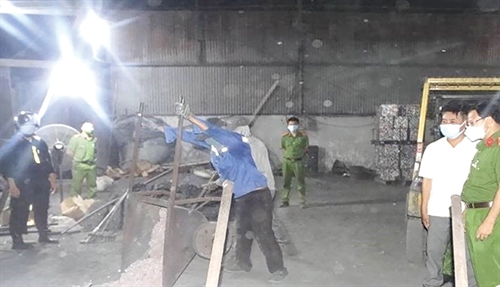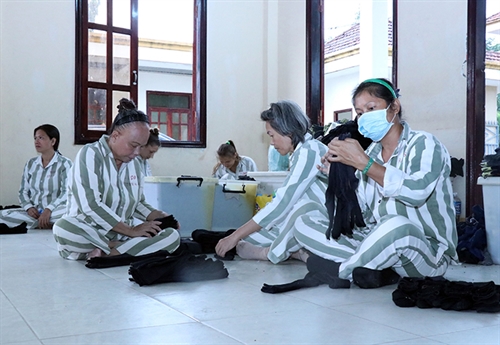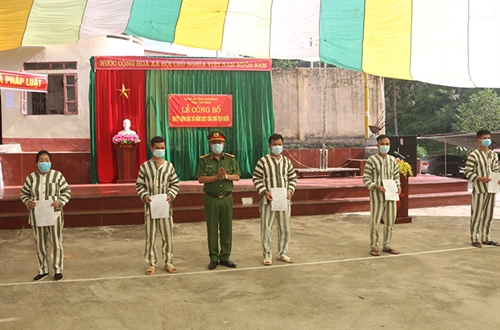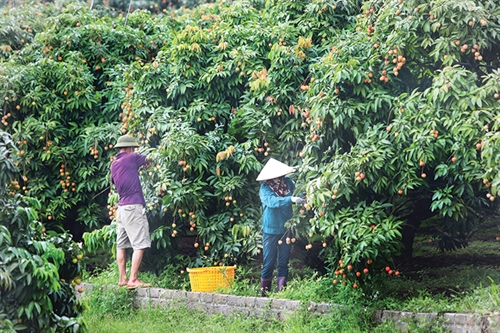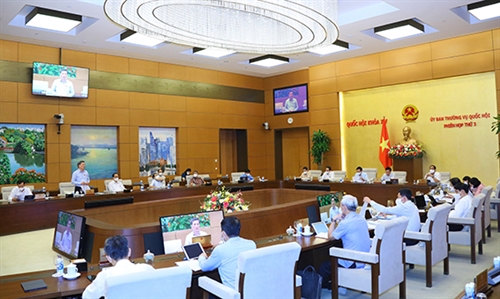Nguyen Van Nam, LL.D.
Vice Dean of the Faculty of Law
People’s Security Academy
Introduction
Vietnam adopted the doi moi (renewal) policy in 1986[1] as part of the transition from a socialist planned economy to a socialist-oriented market economy. The legal reform is regarded as an important part of the doi moi policy. The essence of the doi moi policy is to implement a social-economic reform program and to change the planned economy into a market economy which is still under the state management and follows a socialist orientation[2]. The judicial reform is a crucial part of the legal reform. Since then, the country has recorded many achievements in the judicial reform, among which the recognition of court precedents is considered one of the most radical results.
In the last two decades, the theoretical and practical issues of court precedents as “case law” have attracted interest of many legal researchers in Vietnam. The term “precedent” first appeared in the Communist Party of Vietnam (CPV)’s Political Bureau’s Resolution 48-NQ/TW dated May 24, 2005, on the Strategy to build and improve the Vietnamese legal system by 2010, with a vision toward 2020. The Resolution clearly stated that one of solutions to improve Vietnam’s legislation is “studying the possibility of exploiting and using precedents and customs (including commercial practices and practices of international law) and rules of professional associations, thus contributing to revising and improving the legal system.” Subsequently, the Political Bureau’s Resolution 49/NQ-TW dated June 2, 2005, also provided: “The Supreme People’s Court has the task of summarizing trial experience, guiding the uniform application of the law, and developing precedents”.
The 2014 Law on Organization of People’s Courts officially recognized precedents with the provision that “The Judicial Council of the Supreme People’s Court is responsible for selecting its cassation decisions and other judgments that conform to the standard of judicial decisions for summarization and publishing of precedents for courts to study and apply in adjudication.” Thus, it can be said that “precedent” has now become an officially recognized legal term in the Vietnamese legal system. The term “precedent” was officially defined in the Judicial Council’s Resolution 03/2015/NQ-HĐTP dated October 28, 2015, as follows:
“Precedent is legal reasoning and rulings in a legally effective judgment or decision of a court on a specific case selected by the Judicial Council of the Supreme People’s Court and announced by the Chief Justice of the Supreme People’s Court as precedent for courts to study and apply in adjudication”.
The 2015 Civil Code (Article 6), the 2015 Civil Procedure Code (Article 4 and Article 45.3) and the 2015 Administrative Procedure Law (Article 191.3) all have provisions on principles of application of and reference to precedents in the judicial decision-making process. These legal ground backs the process of using precedents as a source of law in the Vietnamese legal system in the context of judicial reform.
To date, the Judicial Council of the Supreme People’s Court has selected and published a total of 52 precedents for various tried cases in the civil, criminal, administrative and labor fields[3]. This has led to rapid changes in the legal thinking of Vietnamese jurists, changes in adjudicative activities, and a demand for new methods of law education in Vietnam.
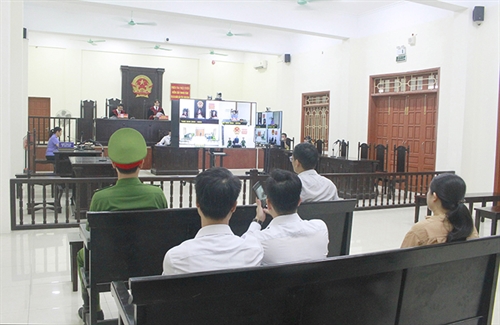 |
| An online court hearing organized by Ninh Binh province People’s Court__Photo: Thuy Dung/VNA |
| An online court hearing organized by Ninh Binh province People’s Court__Photo: Thuy Dung/VNA |
Precedents as a source of law in Vietnam’s legal system
In general, a precedent is an adjudicated case or decision of a court of justice which provides a rule or authority for the determination of an identical or a similar case arising subsequently. The theory on which it is possible for one decision to be an authority for another is either that the facts are alike or that, if the facts are different, the principle that governed the first case is applicable to the variant facts[4].
From the historical point of view, the earliest support for using precedents could be found in the statement of Aristotle that like cases should be treated alike[5]. This idea might be said to be at the root of the doctrine of precedent in both the common law and civil law traditions. However, the doctrine of precedent embodied in the common law tradition is not the same as that followed in the civil law tradition. The doctrine of precedent in English law and American law has to be understood in connection with the evolution of common law in England, and the United States of America. The doctrine of precedent in some civil law countries like Germany and France has its own separate characters in comparison with that of the common law tradition of English law and American law. The key distinction between the common law and civil law systems is that precedent is a primary source of law in the former but only a secondary source in the latter.
The current civil law system, however, has in fact treated the role of precedents in a more positive way. There is a clear tendency in many civil law countries that a settled line of cases has great authority for judges to refer to when they rule on cases before them[6]. Precedents (case law) play a major role in the everyday operation of the civil law system, because general rules in statutory laws need to be interpreted by courts[7].
Vietnamese lawyers currently have a good understanding of the role of legal reception in the development of the Vietnamese legal system. Therefore, doctrine of precedent of a civil law system is proper for Vietnam to adopt. The process of legal reception in Vietnam has to consider adopting the doctrine of precedent which will function well in the current Vietnamse legal system. It is also important to consider developing the doctrine of precedent in Vietnam to serve the new functions of its judiciary, including the plan to legalize precedents as a source of law in the Vietnamese legal system.
Skepticism about the role and function of precedents is based on the view that the traditional socialist legal system did not accept precedents as a source of law. In addition, some have argued that precedents constitute an element of the common law tradition but not the civil law one. These views are delaying the necessary advance of the Vietnamese legal system in line with global trends regarding legal evolution.
Optimism about precedents should be strongly propagated in an exhaustive manner to make sure that acknowledgement of precedents as an informal source of law is truly regarded as necessary for the Vietnamese legal system. The optimistic view is that introducing a proper doctrine of precedent in Vietnam would help resolve problems in the judicial decision-making process and support law education and legislative development. There are some reasons serving as arguments for the belief that one can be optimistic about precedents:
Firstly, as mentioned above, a worldwide trend has shown that precedents can function well in both common law and civil law systems. As Vietnam is a WTO member, Vietnamese lawyers and judges can afford ignoring the role of precedents in the course of interpreting WTO regulations. Some civil law systems have started to use precedents in their legal systems because of the impact of the persuasive value of precedents at the European Court of Justice and also because of the infiltration of WTO regulations into their legal systems. Such global actors are now playing an important impetus for transforming the attitude of Vietnamese lawyers and judges toward the positive role of precedents. As a result, a flexible doctrine of precedent can be adopted in Vietnam. If this process is successful, it will be a turning point in the development of the Vietnamese legal system.
Secondly, precedents are necessary to guarantee the principle of equality before law. As mentioned above, the principle of equality before law is a strong reason for supporting the existence of precedent in a legal system. Article 16.1 of the 2013 Constitution provides “All people are equal before law”. This constitutional principle must be protected in the judicial decision-making process. It would be unfair if two people commit the same crime with similar facts but are given different sentences. It would also be unfair if two parties conclude a contract in Hanoi and such contract is declared valid by the Hanoi People’s Court while in Ho Chi Minh City two other parties conclude the same kind of contract with similar provision but it is declared void by Ho Chi Minh City People’s Court.
Thirdly, precedents serve as a good basis for ensuring that law is uniformly applied throughout the country[8].
Fourthly, predictability of law is good for any democratic legal system. Vietnamese law and judges have already understood that the codification of legal provisions over the last three decades has not necessarily brought the predictability that Vietnamese law makers desire. Codification is not a perfect method for dealing with all legal issues. No statutory law can be exhaustive. Even legal experts cannot see the law in Vietnam as predictable. Thus, to acknowledge precedents is to increase the predictability of the law.
Development of the legal status of precedents in Vietnam’s legal system
As mentioned above, the 2014 Law on Organization of People’s Courts specifies a task of the Supreme People’s Court to actively direct the development of precedents and improve legal grounds and necessary conditions for the development of precedents in Vietnam. Regarding the field of civil law, Article 6.2 of the 2015 Civil Code provides: “In case analogous law cannot be applied in accordance with Clause 1 of this Article, the fundamental principles of civil law provided in Article 3 of this Code, precedents and justice shall apply”. On June 18, 2019, the Judicial Council of the Supreme People’s Court adopted Resolution 04/2019/NQ-HDTP to replace Resolution 03/2015/NQ-HDTP with many revised contents on process of selection, publication and application of precedents to better suit requirements of practical application of law in reality.
Since 2004, with the assistance of the United States Agency for International Development (USAID) within the framework Star project, the Supreme People’s Court has been able to publish judicial decisions of the Judicial Council, with the first two volumes appearing in 2004[9]. The landmark point was October 19, 2016, when the website of the Supreme People’s Court was officially commissioned with available precedents in different fields of law[10]. The precedent website has promptly published news and events related to precedents, judgments and rulings proposed to be selected and developed into precedents, draft precedents, precedents that have been published, and researches and precedent proposals of judges, experts and scientists.
To date, the Supreme People’s Court has published three volumes on cases and commentaries with specific contents of precedents that have been issued and comments of judges of People’s Courts, legal experts, scientists and practitioners thereon. The publication of judicial precedents and commentaries has contributed to facilitating the study, understanding and application of precedents in the performance of courts’ adjudicating duty, helping law firms, organizations and individuals interested in courts’ operations easily access published precedents, and creating a reference source for law-related teaching and scientific research activities. According to statistics as of September 30, 2021, there have been some 1,200 court judgments and rulings that invoked and applied precedents. Vietnamese courts have actively researched to invoke and apply precedents when settling cases under their jurisdiction in order to ensure that cases with similar circumstances and legal events are settled similarly and equally, thereby ensuring the uniform application of law in adjudication.
After nearly six years of publishing precedents of Vietnamese courts, the legal status of precedents is clearly recognized by most Vietnamese judges and lawyers. As the Vietnamese legal system is based on statutory law and not on any kind of common law, the doctrine of stare decisis that supports the use of binding precedents probably cannot apply in Vietnam. So, in adopting a doctrine of non-binding recognized precedents in the country, the Supreme People’s Court should play the key role in effectively spreading this doctrine throughout the operation of the Vietnamese court system in the context of the judicial reform.-
[1] In 1986, the 6th National Congress of the Communist Party of Vietnam adopted the renewal policy.[2] Political Report of the 6th National Congress of the Communist Party of Vietnam, quoted in “Nguyen Khac Vien, Vietnam A Long History”, The Gioi Publishing House, Hanoi 2004, pp.410-434.[3] https://anle.toaan.gov.vn/webcenter/portal/anle/home[4] Bryanth A. Garner, Black’s Law Dictionary, Seventh Edition, West Group St. Paul, Minn (1999), p. 1195.[5] Gale Group, the Dictionary of the History of Ideas (2003), at http://etext.virginia.edu/cgi-local/DHI/dhi.cgi?id=dv3-05 (January 15, 2007).[6] M.A. Glendon M.W.Gordon; P.G.Carozza, Comparative Legal Tradition, St. Paul, Minn (1999). p.131.[7] M.A. Glendon M.W.Gordon; P.G.Carozza, supra note 10, p.130.[8] Vietnamese people and judges often complain about the “jungle of legal documents” or, in other words, inconsistent application of provisions in the legal system.[9]Toa An Nhan Dan Toi Cao, Dac San Cua Tap Chi Toa An, Quyen I Cac Quyet Dinh Ve Dan Su Kinh Doanh, Thuong Mai, Lao DongNam 2003-2004, Hanoi 2004. (the Supreme People’s Court, Reports of Judicial Decisions of the Judicial Council on Civil, Business, Commercial and Labor Cases in the 2003-2004 period, Hanoi 2004).[10] https://www.toaan.gov.vn/webcenter/portal/tatc/home
